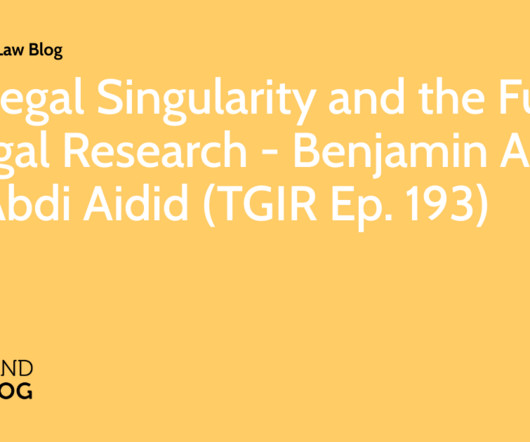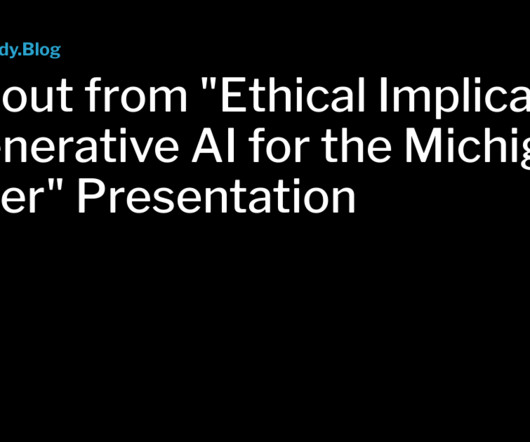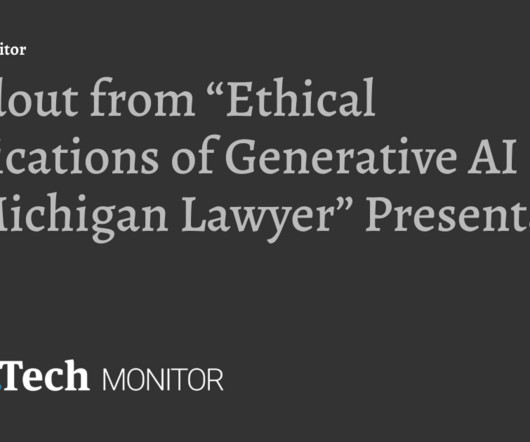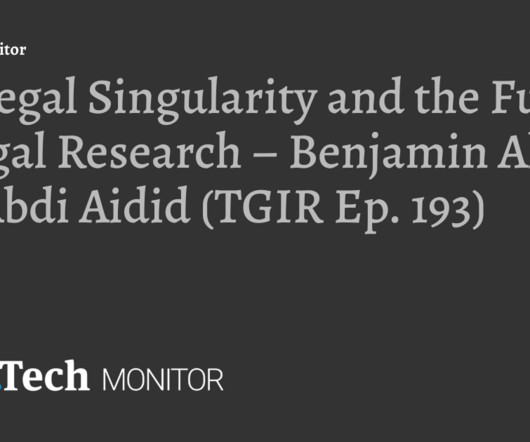Berkeley Technology Law Journal Podcast: The Capabilities and Limitations of ChatGPT with Professor Chris Hoofnagle
Berkley Technology Law Journal
FEBRUARY 27, 2023
In today’s episode, we’ll be diving into the fascinating world of one of the most advanced machine learning tools out there: ChatGPT. Professor Hoofnagle] 03:03 ChatGPT is the newest iteration of a machine learning technology that can generate text. I’m your host, Eric Ahern.













Let's personalize your content